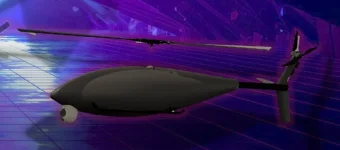Let's talk about secret agents! For over 56 years, India's Research and Analysis Wing (R&AW) has been its top intelligence agency. Founded in 1968, R&AW was built to protect India from outside threats, even given the power to do secret missions across borders! But unlike spy agencies you see in movies, R&AW was founded on secrecy. Its first boss, Rameshwar Nath Kao, wanted it to work in the shadows, avoiding the public eye.
Spy Agencies Gone Public
It turns out, India's not alone in having a super-secretive spy agency. But here's where things get interesting – many famous agencies like America's CIA, France's DGSE, and others, openly run websites and tell people about their work! They even ask the public for information and tips.
Imagine that! The CIA, the most powerful spy agency in the world, has a whole section on its website about how YOU can help them. They even give you email addresses to contact them! Meanwhile, if you have info you think could help R&AW, there's no easy way to get in touch.
China's Change of Heart
Even China, known for its secrecy, decided to change how its intelligence agency, the MSS, worked. For years, they were practically invisible. But after seeing how Western spy agencies interacted with the public, President Xi Jinping decided to try something different. In 2015, the MSS launched a website, got a hotline for tips, and even joined social media!
Can India Learn From Others?
You might be wondering, why does this matter? Here's the thing: lately, there's been a lot of misinformation and fake news spread about R&AW. Without a strong, official voice to set the record straight, these stories grow like weeds. Imagine how much easier their job would be if R&AW could open up a little, even just a one-way channel for people to share information.
The Old Ways: An Interview Tells the Story
A former R&AW officer named Vappala Balachandran shared some pretty surprising thoughts about this. The way he tells it, R&AW was afraid of the media. Even though officers had good relationships with journalists, they were told to stay completely silent. He even describes how they had to fight back against fake news stories without any official way to deny them.
The One Time They Spoke Out
Balachandran does tell an interesting story, though. In the 1970s, R&AW was tracking Pakistan's secret nuclear program. Frustratingly, no one believed them! So, for the first time, they decided to carefully leak information to foreign journalists. They figured if the Americans heard it in the news, they'd finally pay attention. It was a risky gamble, but it shows how difficult it can be for a closed-off agency.
The Question Remains
R&AW still faces the same dilemma: stay hidden or step into the light a little? Even seeing the success of China and the US with more open approaches, Delhi and R&AW haven't budged. Should India's top spies continue to work completely behind the scenes, or is it time for a change?


